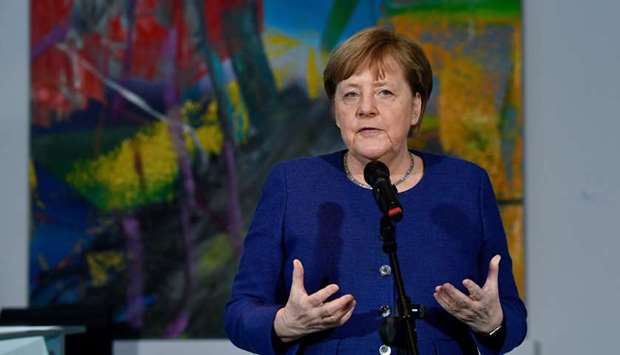German Chancellor Angela Merkel has once again described the restrictions on fundamental rights during the coronavirus pandemic as an “imposition” on democracy – but at the same time she defended the measures.
The conservative politician said in her weekly podcast released to mark Constitution Day on Saturday that she could understand citizens’ concerns about the constraints during the pandemic.
The government, she said, is not taking a casual approach to restrictions on fundamental rights.
“That is why they should be as short as possible. But they were necessary, and we have always justified this because we feel responsible for the dignity of people, as stated in Article 1 of our Basic Law,” she said.
This includes preventing the health system from being overwhelmed, and fortunately this has also been achieved, Merkel said.
“But of course we now have to justify when restrictions are being lifted why we are not easing something yet and why we can already relax something else.
“And of course we always have to weigh the proportionality of measures against each other in this way,” she said.
Therefore, she said she is glad that the current infection situation made it possible to make many things possible again that had been restricted for a few weeks.
Merkel went on to say that the coronavirus pandemic presents society with special challenges, perhaps the greatest in the 71 years since the Basic Law – Germany’s constitution – was passed on May 23, 1949.
It is all the more important to respect the principles of the Basic Law, she said.
As of morning yesterday, more than 177,700 infections with the coronavirus had been recorded across Germany, according to a compilation of official state figures compiled by dpa, while at least 8,199 people have died.
Demonstrations against restrictions imposed by the state to curb the coronavirus pandemic were planned again in numerous German cities yesterday.
Already over the past few weekends thousands of people across Germany have demonstrated against the government’s coronavirus policies and interference with fundamental rights.
But there have also been counter-protests directed against conspiracy theorists or “right-wing agitation”.

Merkel: (Restrictions to fundamental rights) were necessary, and we have always justified this because we feel responsible for the dignity of people.
